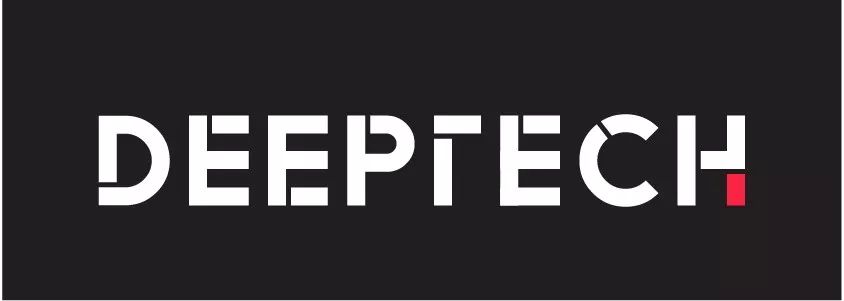The Haze Behind The Controversial Technology Rush Of Artificial Intelligence Ethics
The Haze Behind The Controversial Technology Rush Of Artificial Intelligence Ethics
In the wave of technology, artificial intelligence has developed rapidly at an amazing speed. Today, AI has spread across various fields such as medical care, education, finance, and transportation, bringing unprecedented convenience and changes to human society.From assisting doctors in disease diagnosis, to realizing personalized learning, to optimizing financial risk assessment and intelligent traffic management, AI has undoubtedly become an important force in promoting social progress.However, just like there are always shadows behind the sunshine, the rapid popularity of AI has also caused a series of tricky ethical controversy. These problems are like reefs hidden under the glamorous appearance of technology. They not only concern the development of technology itself, but also deeply touch on deep social issues such as privacy, fairness, employment and social structure. Next, let us explore in-depth several core issues in the current controversy over artificial intelligence ethics.

In the wave of technology, artificial intelligence (AI) has developed rapidly at an amazing speed. Today, AI has spread across various fields such as medical care, education, finance, and transportation, bringing unprecedented convenience and changes to human society.
From assisting doctors in disease diagnosis, to realizing personalized learning, to optimizing financial risk assessment and intelligent traffic management, AI has undoubtedly become an important force in promoting social progress.
However, just like there are always shadows behind the sunshine, the rapid popularity of AI has also caused a series of tricky ethical controversy. These problems are like reefs hidden under the glamorous appearance of technology. They not only concern the development of technology itself, but also deeply touch on deep social issues such as privacy, fairness, employment and social structure. Next, let us explore in-depth several core issues in the current controversy over artificial intelligence ethics.
1. Privacy and Data Security: The "Pandora's Box" in the Digital Age
The booming development of AI technology is inseparable from the strong support of massive data. Whether it is an intelligent voice assistant, an accurate recommendation system, or a widely used face recognition technology, every smooth interaction and accurate prediction are behind it. But in recent years, data abuse and leaks have occurred frequently, just like opening the "Pandora's Box", which has aroused strong public concerns about privacy protection.
Key question: Who has the right to collect and use this data that contains user privacy? How to establish an effective guarantee mechanism to ensure that data is not maliciously used?
Focus of controversy: Is there a perfect balance between enjoying the convenience brought by AI and protecting personal privacy? Should governments and enterprises assume more responsibilities and obligations in data security management?
2. Algorithm bias and fairness: "Discrimination" hidden in code
The training data of AI algorithms often comes from the real world, and various biases in reality, such as gender, race, region, etc., will also be "copied" into the algorithm. This leads to the decisions made by AI may have unfair results for certain specific groups in some important decision-making scenarios, such as recruitment screening, loan approval, and judicial sentencing.
Key question: How can we ensure that AI algorithms are fair and just in the decision-making process without favoring either party? Once algorithmic bias occurs, who should bear the responsibility?
Focus of controversy: While pursuing technological innovation, should technology developers shoulder the important responsibility of maintaining social fairness? How to effectively supervise the algorithm so that its internal logic is more transparent and explainable?

3. Employment and social structure: "pain" under technological change
The strong automation capabilities of AI are gradually replacing many traditional jobs, especially in labor-intensive fields such as manufacturing and service industries. Although AI will also give birth to some new occupations and employment opportunities in the long run, in the short term, drastic adjustments in the employment structure may aggravate social inequality and put some workers in unemployment difficulties.
Key question: What effective measures should we take to deal with the employment impact brought by AI? How to help those affected groups successfully achieve career transformation?
Focus of the dispute: Should the government intervene by introducing relevant policies, such as providing a comprehensive retraining plan or even implementing a basic income guarantee system?
4. The issue of responsibility attribution: an "gray zone" that is difficult to define
When AI systems make errors or even cause serious damage, the definition of responsibility becomes extremely complex. Taking autonomous vehicles as an example, if a traffic accident occurs, should the automaker, algorithm developer, or vehicle user bear the responsibility? There is no clear answer yet.
Key question: In the context of the widespread use of AI, how to accurately and clearly define the legal responsibilities of AI systems? Is it necessary to build a completely new legal framework to adapt to this technological change?
Focus of controversy: Is the existing legal system already struggling when facing the new challenges brought by AI? How to improve and innovate?
5. The militarized application of AI: the "Sword of Damocles" hanging above human heads
The application of AI technology in the military field has caused widespread controversy around the world. The emergence of autonomous weapon systems means that machines may independently make fatal attack decisions without human real-time intervention, which undoubtedly poses huge potential risks to human security.
Key question: Should AI be completely banned from the application of military field? If it cannot be banned, how should strict rules be formulated to prevent technology from being abused?
Focus of the controversy: How should we grasp the limit and clarify the boundaries between pursuing military and technological advantages and maintaining human security?
6. The conflict between AI and human values: the "moral dilemma" behind the cold logic
Decisions in AI systems are usually based on pure logic and efficiency principles, but this can be violently conflicted with human rich and diverse morals and values. For example, when medical resources are limited, AI may recommend giving up treatment for certain critically ill patients from the perspective of maximizing resource utilization, which is obviously contrary to human values such as life supremacy and humanitarianism.
Key question: How to guide AI decision-making in line with ethical standards that human society has long followed? Is it feasible to give AI a certain level of moral judgment?
Focus of controversy: If AI is to be given moral judgment ability, how should these moral standards be scientifically and reasonably defined and constructed?

Conclusion
The ethical controversy caused by artificial intelligence is essentially not the "original sin" of technology itself, but the growth troubles that human society will inevitably encounter when facing rapid technological progress. Solving these complex problems requires the joint participation and efforts of technology developers, policy makers, ethicists and the general public. Only by finding a delicate balance between technological innovation and ethical norms can artificial intelligence truly become a powerful driving force for human progress, rather than a hidden danger that poses huge risks.





